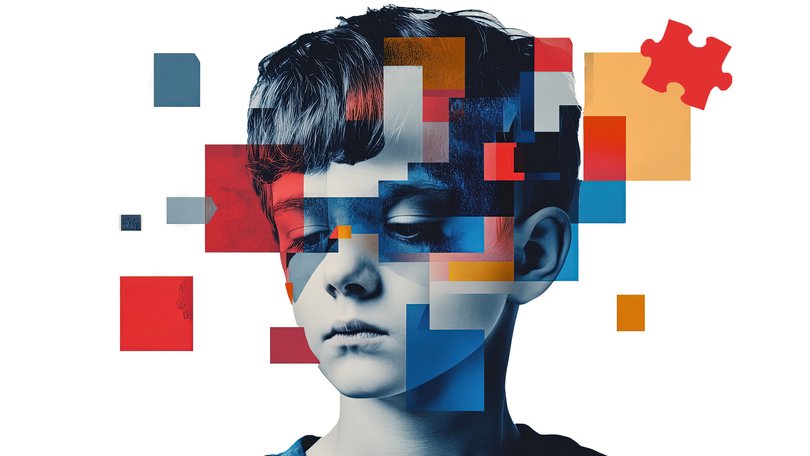ANDREW LEECH: Is it really ADHD or could your kid just be low on iron?

I’m seeing a lot of letters from school teachers asking for children to be assessed for ADHD. The reasons vary — daydreaming, zoning out, disrupting classmates, or simply falling behind in schoolwork.
Fidgety, restless kids are always going to be a proportion of children in primary school. This is a normal developmental behaviour. We have to think a bit deeper than just ADHD. Not every child who fidgets has ADHD. Not every child who struggles to learn has ADHD.
But yes, ADHD is real. And when properly diagnosed, the impact of treatment can be transformative — improving a child’s learning, confidence, and long-term outcomes. So how do we get it right? How do we avoid missing kids who need help, while also not over-labelling?
Sign up to The Nightly's newsletters.
Get the first look at the digital newspaper, curated daily stories and breaking headlines delivered to your inbox.
By continuing you agree to our Terms and Privacy Policy.About 16–20 per cent of neurotypical children exhibit high levels of movement-based behaviours purely as part of their personality or developmental path.
Meanwhile, up to 80 per cent of children with ADHD demonstrate excessive restlessness or movement-seeking behaviours.Some kids just need to move. They naturally gravitate towards subjects like PE, art, or music. That doesn’t rule out ADHD, but we need to avoid jumping to conclusions. I strongly support accurate, careful assessment, especially when these challenges impact wellbeing or learning.
Diagnosing ADHD may seem simple. There’s a list of criteria and questionnaires. But these tools are subjective. How the forms are filled out, and by whom matters. Interpretation matters too. We don’t have a blood test for ADHD. It’s not black and white.And more importantly, a child is more than a set of symptoms. Before getting a paediatrician referral, we need to look at the foundations of life, the basic things that affect every child’s ability to learn and function.
Sleep
It’s not just how much kids sleep, but the quality of their sleep. Many children today are going to bed later, exposed to screens before sleep, and missing out on calm, connected bedtime routines like reading with a parent.I often see children who aren’t reaching deep REM sleep the restorative phase needed for memory and learning. Causes vary: such as big tonsils causing sleep apnoea, restless legs from iron deficiency, or nighttime anxiety and stress. Kids might not complain about this,they might just appear naughty and disobedient, some might say they feel tired in the morning or are hard to wake. It’s not surprising they can’t concentrate in class, become irritable, or struggle to keep up.
Nutrition
Nutrition is the cornerstone of a child’s energy, focus, and mood. Yet many kids are skipping breakfast — “we don’t have time,” they tell me. A simple meal like Weet-Bix or eggs on toast can make a massive difference.
Lunchboxes at school can vary in the proportion of packaged food to fresh food. I hold no judgment on this, sometimes it’s more about having something to eat rather than quality during a busy day. Fussy eating isn’t new, it’s just more recognised now. Genetics play a large role in picky eating, though early environment matters too.
Water intake is also often inadequate. Despite fancy water bottles, many kids return home with them still full. Dehydration contributes to fatigue, brain fog, and irritability.
I organise a blood test every child who presents with focus or learning issues. Nearly all have some kind of nutrient deficiency. This is no exaggeration! Whether it be iron, zinc, vitamin D, B12, magnesium. Replacing these using evidence-based guidelines often leads to remarkable improvements. Our in-clinic iron infusion clinics for kids, for example, have shown that low iron can mimic ADHD symptoms, when I check in a few weeks later these kids are brighter, sleeping better and eating more iron rich foods.

Emotional & Social Wellbeing
Children vary widely in how they cope with stress. Sensitive, shy kids may fly under the radar by being quiet in class, anxious about speaking up, or struggling socially. Teachers might see them as “good kids,” yet they’re often feeling overwhelmed or disconnected, we sometimes call this “masking”. They hold it in so they don’t stand out.
At the other end are the boisterous, outspoken kids who can be fun-loving, energetic, or getting into trouble for talking or moving too much. Their confidence can be a strength but may also lead to challenges with behaviour and learning.
Anxiety and ADHD often overlap. I see it every week. Sometimes anxiety causes focus issues. Other times, untreated ADHD leads to anxiety. It’s a classic chicken-and-egg dilemma. That’s why a thorough assessment is critical before jumping to a diagnosis.Too often, the sequence looks like this: A tough semester at school; a meeting where the teacher reports distractibility; a letter to the GP requesting a paediatric referral; a long wait list and overwhelmed parents ringing around multiple places to get help; a rushed assessment with limited context; a diagnosis. Medication. Done.It’s understandable. GPs are under pressure. Parents are desperate. But we risk oversimplifying a complex child. ADHD is a lifelong diagnosis. Stimulants can be life-changing, but they aren’t benign. They must be used judiciously, with the right support for the child.
Physical Health
Basic health issues are often overlooked. Allergies, asthma and eczema, for example, can flare up, disrupt sleep through itchy skin or a nighttime cough. That alone can affect learning. Hearing and vision are vital. Many kids develop fluid in their ears (glue ear), especially after infections or from allergies. Grommet surgery can be a game-changer. Kids go from hearing muffled sounds to crystal clarity, often transforming classroom engagement overnight.
The ripple effect
A tired child wakes late, skips breakfast, tunes out at school, gets in trouble, feels anxious, comes home agitated, fights with their family, goes to bed worried, and the cycle continues. I see this pattern every week. It’s common. And it’s not always ADHD.
Sometimes, we just need to break the cycle by working on the sleep issues, supporting the home routine, and rebuilding their confidence.
What helps?
Time certainly helps in some cases as it gives us more of a chance to see what’s going on but also to see if it is a permanent issue or one that is situational and passing. Simple, but powerful. I often suggest we pause and review in a term or two. Is this just a difficult patch?
Has there been a big change in the child’s world that we didn’t realise would impact them but has? Death of a pet or family member for example. Are they going through hormonal changes? A mismatch with the teacher? Friendship challenges?Parents often worry: “What if we miss the boat? What if they fail or and turn into a horrible teen?” I understand. But we must focus on what’s needed now, not just fears about the future.Early intervention is essential. But it doesn’t always mean a diagnosis. It can mean seeing a psychologist, starting OT or speech therapy, or joining a social group. Sometimes, it just means being present ourselves as parents and adults through actively pausing our own lives and sitting with our kids — playing, listening, observing.The simplest intervention? Less screen time. More nature.
Time outdoors regulates stress, improves focus, and helps kids who are movement-seeking. That could mean more outdoor breaks at school, or getting involved in sport, bike rides, swimming, or bush walks.I feel there is a huge need for upskilling for all of us — more parenting programs to help understand children’s emotional wellbeing, more support for teachers and increased education to GPs. Many of the GPs I work with find this area to be time consuming and complex.As I’ve previously highlighted in The West Australian, paediatric wait lists in WA, both public and private are under immense strain. Not every child needs to be on them. Many would benefit more from a holistic, step-by-step assessment and finding the right people along the way to help you get there so that your child reaches the best possible outcome and support.Dr Andrew Leech is the director of the Garden Family Medical Clinic and author of Calm Kids, Happy Hearts
